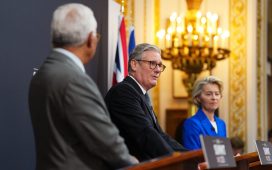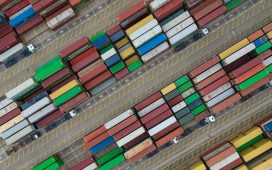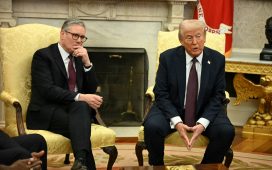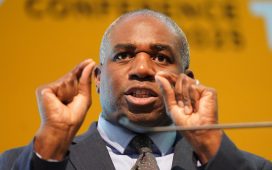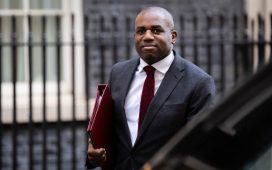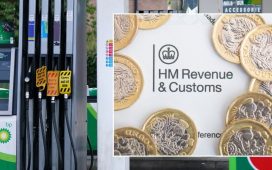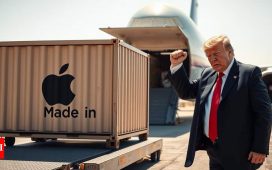A cloud hangs over the global economy, experts have warned, after a bombshell court ruling blocked Donald Trump’s tariffs, creating more “confusion and uncertainty”.
Financial markets reacted positively to the unanimous ruling by three judges, but the decision enraged the White House, with the US president’s official spokesperson, Stephen Miller, calling it another “judge coup”.
The White House has appealed the decision, but it means all of the president’s “Liberation Day” tariffs now face a protracted legal process that could overshadow trade talks and delay the implementation of existing deals, including with Britain.
The Trump administration has won a temporary reprieve through the appeal, which means the tariffs will be reinstated while the case makes its way through the courts.
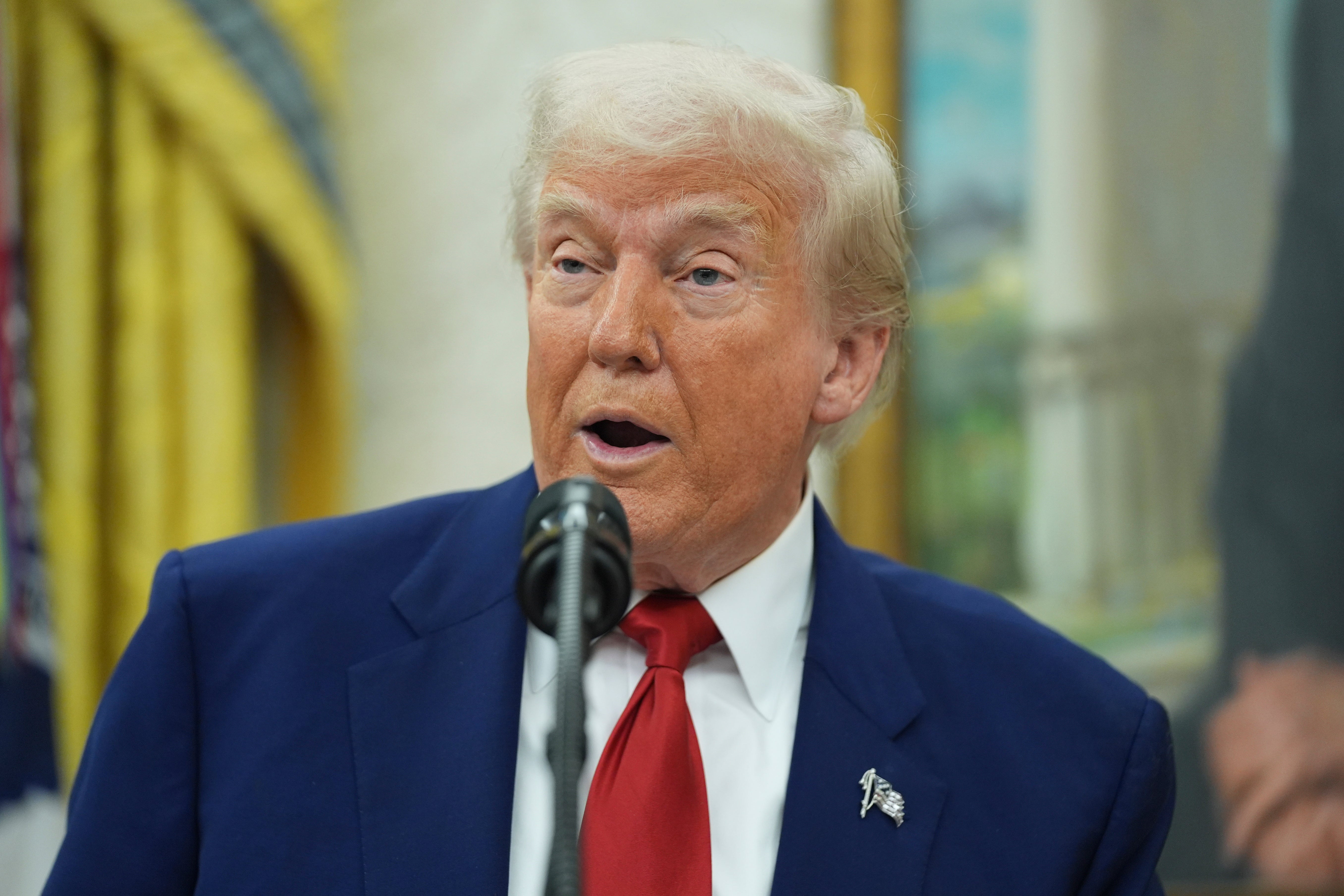
Only the 25 per cent tariffs on steel, aluminium and cars are unaffected by the ruling.
White House press secretary Karoline Leavitt criticised the court’s ruling as an example of “judicial overreach”.
She added that Mr Trump’s tariffs were introduced to tackle US trade deficits with other nations and said the taxes are “legally sound” and “long overdue”.
Ms Leavitt hit out at the judges in the briefing, saying they were threatening to “undermine” America’s credibility on the global stage.
When asked why other countries would continue with trade negotiations, she said the US ambassador for trade had heard from countries this morning that they intended to continue working with the US.
“We will win this battle in court,” she told the media, adding that the court is trying to stop Mr Trump from “correcting the wrongs of the past”.
Chris Southworth, secretary general of the International Chamber of Commerce United Kingdom (ICCUK), said months of legal wrangling would further weaken economic confidence.
He said: “It just puts a whole cloud over the top of any negotiation with the US because it’s unclear what the US is negotiating and what their position will be from a legal standpoint.
“The problem is, these tariffs change almost every day with the US at the moment, and this uncertainty isn’t good for business.”
Marco Forgione, director general of the Chartered Institute of Export and International Trade, is also worried about the impact.
He said: “It’s clear that we live now in a time of growing uncertainty. But businesses, especially our world-leading food and drink producers, should not rush to react. Whatever the outcome of the legal appeal, keeping calm is the best approach.
“The UK must keep backing open, rules-based trade to give our exporters the certainty they need to succeed.”
Trade economist Simon Evenett told The Independent that the ruling could mean tariffs on sensitive sectors such as cars, steel, aluminium and pharmaceuticals intensify instead of coming down, as they’re not covered by the judgment.
He said: “Britain’s principal interests lay in the area of cars, steel, aluminium and pharmaceuticals. All of these are covered by investigations under national security and are not covered by the ruling yesterday. This means the risks to the UK in those sensitive sectors remain, and are likely to intensify.”
However, an ally of the Trump administration – Andrew Hale, a trade expert from the influential Heritage Foundation – told The Independent that the judges’ decision is “good news” for the UK.
Mr Hale described the deal signed by Mr Trump and Sir Keir Starmer earlier this month as “just a framework document with very little in it”.
He added: “It was meant to be a start for further trade negotiations and deal with some of the tariffs. So [the ruling] is good news [for the UK] because it prevents the [Trump administration] because it is detrimental to the Trump administration’s negotiations. They cannot use the International Emergency Economic Powers Act to impose tariffs quickly and broadly as a negotiating tactic in negotiations.”
In a speech on Thursday, Sir Keir defended his deal with Mr Trump despite new question marks over the terms – and revelations the US has yet to lower tariffs on car and steel exports from the UK as originally agreed.
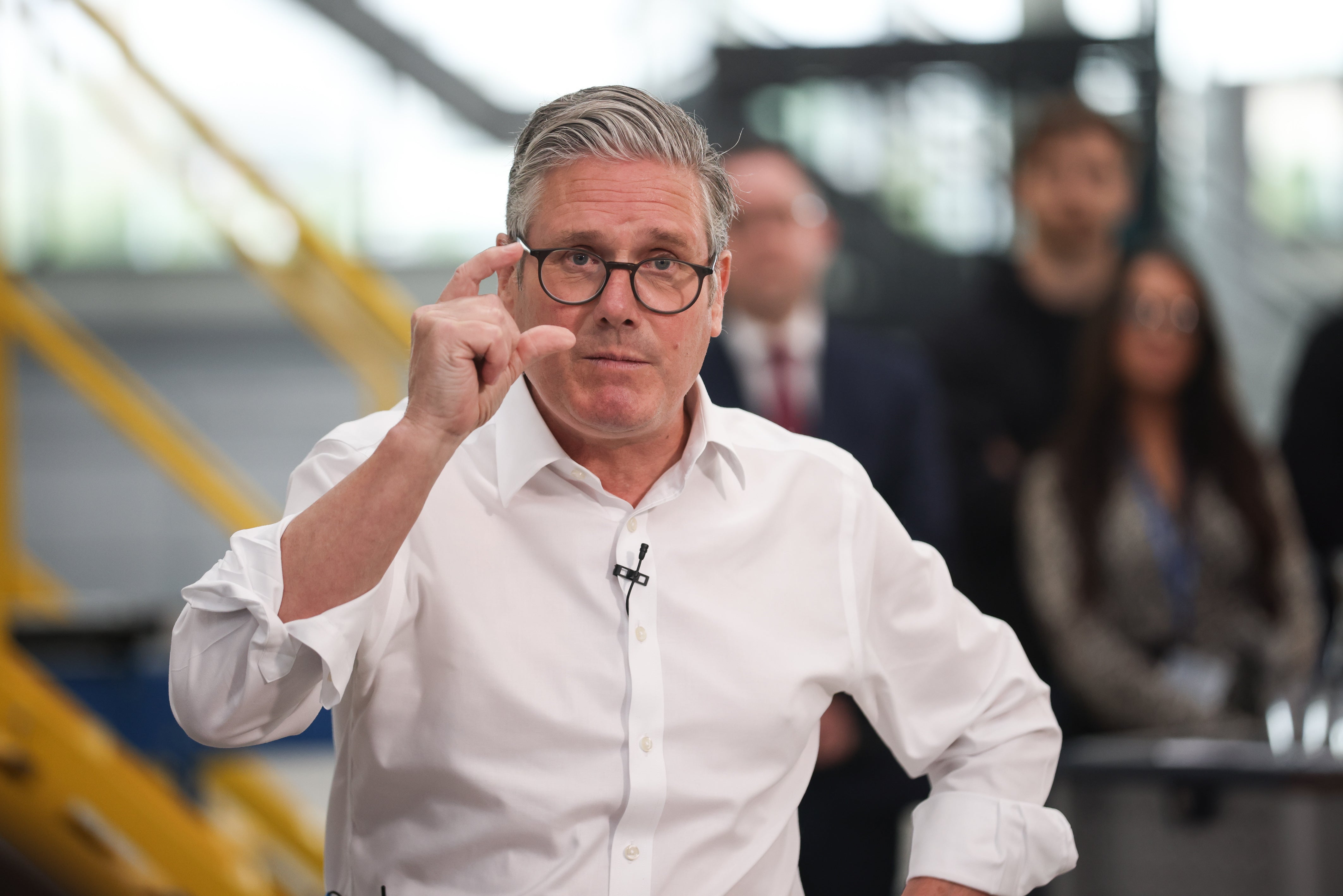
The prime minister highlighted how the deal will ultimately help workers at Jaguar Land Rover, whose jobs had been under threat.
But the uncertainty created by levies has already led to smaller firms in the UK abandoning the US market, according to Federation of Small Business policy chair Tina McKenzie.
She said: “This court decision offers the possibility of short-term relief for small businesses trading across the Atlantic, many of whom have spent the last few months caught in a tangle of uncertainty, shifting rules and sudden extra costs. In fact, one in five said they had already stopped, or may stop, exporting to the US altogether.”
The Commons select committee on business and trade is set to open an inquiry on trade with the US.
Committee chairman Liam Byrne said: “There’s still considerable uncertainty about when the sector-specific exemptions in the recent deal actually come into effect, and what UK firms need to do to access them. This is a key thing we want to cover next week. On the broader tariffs, my understanding is that these now go back to the previous level.”
Meanwhile, Lib Dem leader Sir Ed Davey demanded that the foreign secretary David Lammy summon the new US ambassador, Warren Stephens, to explain the situation.
He said: “The levels of chaos from Trump’s economic policy are putting Liz Truss to shame.”

